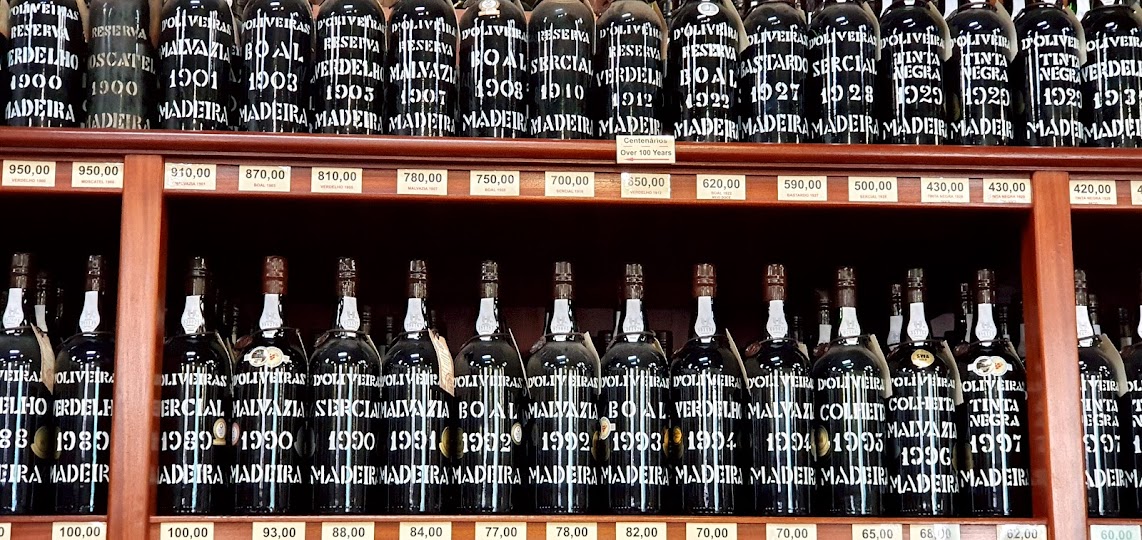The Douro wine region was created one fine morning, on 10th September 1756, when Portugal decided to put some systematic order in the production of its most widely known and appreciated alcoholic drink. This makes Douro the oldest demarcated and regulated wine region in the whole world.
It consists of two parts: Douro for regular wines and Porto for the iconic fortified brother. Today we focused on the latter.
Just as a reminder of port categories, here is how one should read the labels, and below a selection of my personal picks from a superb collection put together by Westbury Communications for the Instituto dos Vinhos do Douro e do Porto.
Over a hundred varieties are allowed, but only five (Tinta Barroca, Tinto Cão, Tinta Roriz (Tempranillo), Touriga Francesa, and Touriga Nacional) are the most commonly used. White port is made with Malvasia Fina, Donzelinho, Gouveio, Codega and Rabigato.
Ruby: wine usually made in steel. "Vintage" is given only for special years when the IVDP recognizes a potential for long aging, usually 3 or 4 times in a decade. "Late bottled vintage" is a ruby port that has spent longer in the oak barrel, at least 4 years, usually longer than that, and it develops more complex and subtle flavors as a result.
Tawny: especially chosen for aging in oak casks. Wine is slowly exposed to air in the barrels. When an indication of age appears (10, 20, 30, 40 or 50 years) it means the wine has been produced blending products from different years to obtain a final result that in the opinion of the winemakers shows the characteristics for that age. It does not mean that all the wine is as old as indicated on the label.
Colheita: a Tawny wine that comes from a specific year's vintage. Aged in wood for at least 7 years and often 20 or more years.
Port sales worldwide have recently topped 80m bottles per year.
Here are the best bottles of today.
 |
| Dia and her Burmester treasures |
Burmester
Colheita Tawny 2003, score 89
20 Year Old Tawny, smooth, score 92
40 Year Old Tawny, great balance, caramel, score 93
1967 Colheita, a surprise not in the original catalog! Complex nose and palate of dried apricots, caramel, very long, score 96, the best bottle today ex aequo.
Allegedly the oldest port house still in existence, founded in 1638.
50 Year Old Tawny. Complexity, balance, length: a harmonious wine, score 96, the best bottle today ex aequo.
40 Year Old WHITE, nutty, fragrant, score 94
30 Year Old WHITE, as above, a bit less evolved, score 90
Colheita WHITE 2003 and 2005, smooth, sweet sensations prevail, score 86
Garrafeira Tawny 1987, a smoky wine, unique, one may love it or leave it! Aged in demijohns which produces a smoky result. Nieport is the only house to use this process today. score 95
Royal Oporto 40 Year Old Tawny, score 92 RRP GPB 120
Royal Oporto Colheita Tawny 1977, score 93 RRP GBP 140
Royal Oporto Colheita Tawny 1980, score 89
Ferreira Dona Antonia 10 Year Old WHITE, score 86
Ferreira Dona Antonia 20 Year Old Tawny, score 88
Ferreira Dona Antonia 30 Year Old Tawny, score 92 RRP GBP 99
Sandeman 40 Year Old Tawny, score 90 RRP GBP 156, dry for its age.
Sandeman 50 Year Old Tawny, score 96, RRP GBP 330, a harmonious wine, the best bottle today ex aequo.
I could not have asked for a better bottle to end today's tasting.
 |





No comments:
Post a Comment
Please leave your comments here! Thank you!